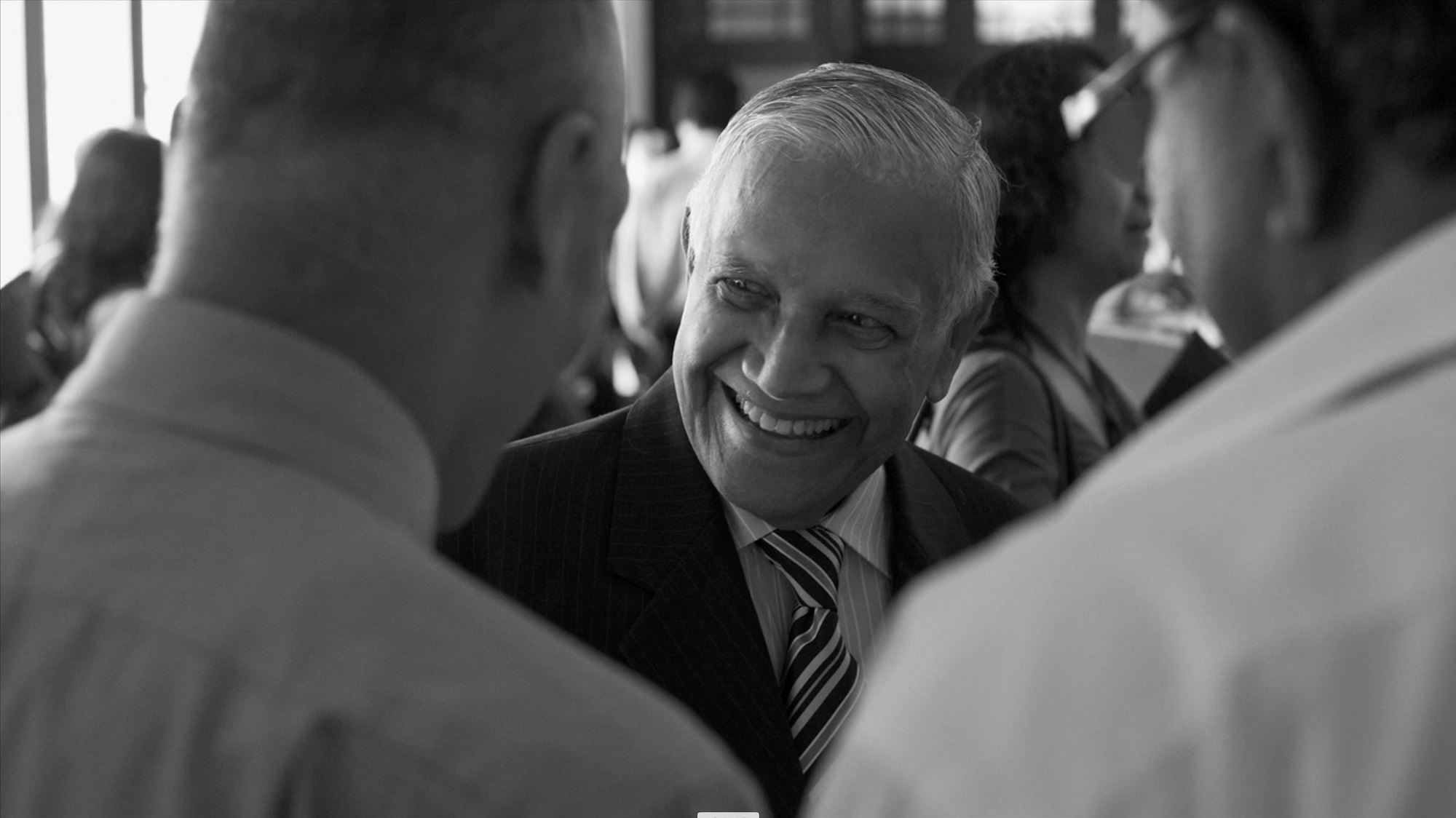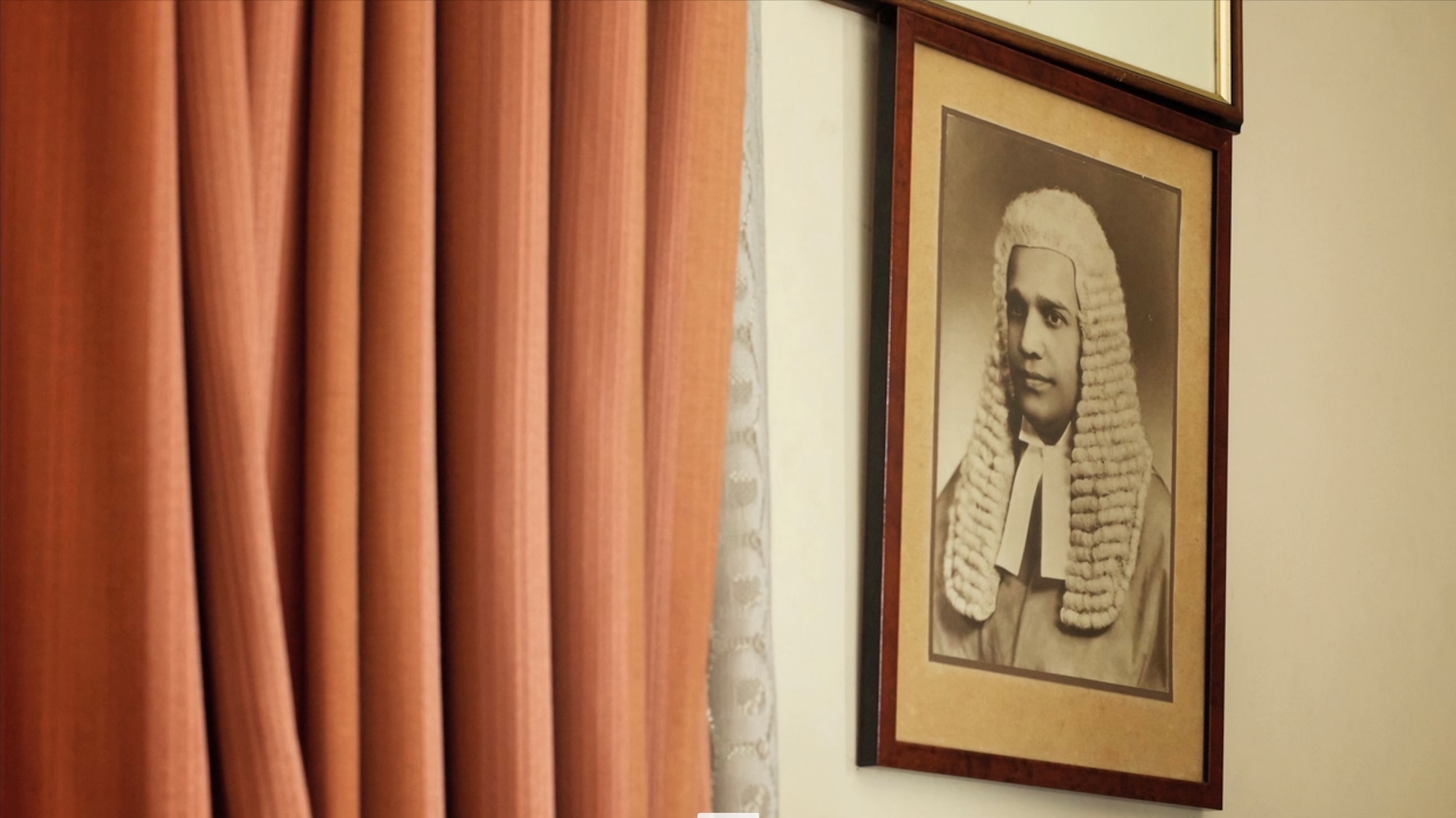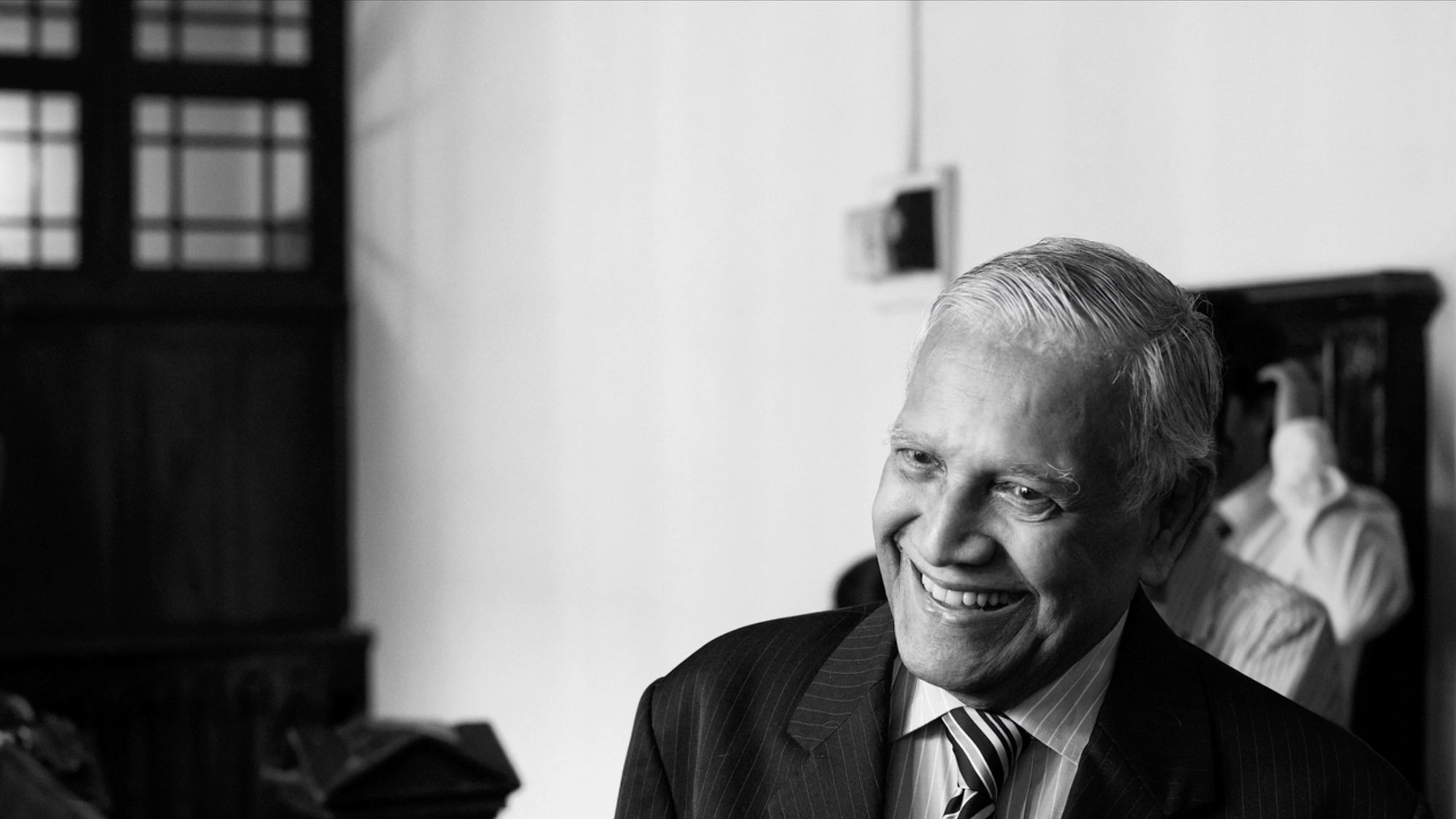The judge
Christopher Weeramantry
Judge Christopher Weeramantry is a former judge of the International Court of Justice and the senior-most retired judge in Sri Lanka. His campaign against nuclear weapons proliferation is famously captured in a dissenting judgement during his tenure at the ICJ, as well for respecting the environment. Taking inspiration from his elders and borrowing from the wisdom of world religions, the judge has been spreading his message of peace for decades.


Transcript and translations
Language
Subjects discussed
One day she told me that she had expectations of my writing some beautiful judgements
I am much honoured in carrying out the task of introducing one of the greatest scholars of this country this morning. The only qualification I am having to introduce him is that I read his book in two volumes of Law of Contracts when I was a student and still I am reading his book, nearly 35 in total…
My mother has father, who was a lawyer, was a Buddhist. He came of a Buddhist family from Galle who married into a Catholic family in Colombo. So my mother and her sister were brought up as Catholics, but with a good background of Buddhism. So through both of them I learned a fair amount about Buddhist teaching.
They would have thought that I was doing what I should be doing. That is, that I should be trying to spread the right observances in regard to dangers threatening society.
…take stock the situation of humanity as it enters this new millennium. And where do we find ourselves now? We find ourselves in a world where more than a billion dollars are spent every day on armies, manufacture of weapons, of death, and we should be thinking of ways and means of helping those who are in distress.
At that time in Sri Lanka, we had no communal differences and on the same street there would be Singhalese, Burghers, Tamils Muslims and we would be in and out of each other’s houses. We would be the best of friends. Our parents would stand at the doors and receive people from any of those neighbours, from any of those houses. And those were happy occasions for everybody. If there was a Christian festival or a Muslim festival, Hindu festival, there would be some kind of celebration in the houses concerned and we would all be welcome visitors and there would be perhaps a nice meal awaiting us if we went there. And there was total harmony all around us.
Judge Weeramantry… Judge Weeramantry… “the launching of a nuclear weapon is a deliberate act. Damage to neutrals is a natural foreseeable and indeed inevitable consequence. International law cannot contain a rule of non-responsibility which is so opposed to the basic principles of universal jurisprudence.
My opinion was about 100 pages and I detailed all the arguments, both pro and con, and showed that there was no justification whatsoever for the use of the nuclear weapon in any circumstances at all. I’m happy to note that whenever the illegality of nuclear weapons comes under discussion, that opinion is often cited.
Well, my mother would have thought that it was absolutely my duty to come out with such a judgement if the opportunity arose. I remember the books she used to read on legal philosophy, not legal philosophy, on philosophy and religion. And she was constantly into that. And she also knew something about how the courts functioned and so she was very interested in that. And one day she told me that she had expectations of my one day writing some beautiful judgments. She just said that. I don’t know why she said it. I didn’t even know what was meant by that at the time. But it just so happened. I remember her using that word and later I came to understand what it was. But it’s not because she said so that I was steered in that direction. But it so happens in life. Because she was always concerned with the higher values and always concerned that the right thing should be done. And the right thing according to not one religion, but all the religions. And this is one thing which all the religions would condemn, that is a nuclear weapon.
And she would have thought that I was lacking in my duty if I had not done so. And I think it would have given her a lot of satisfaction to know that I was helping to promote through judgments an understanding of better ways in which society should handle its problems.




Comments
Leave a comment